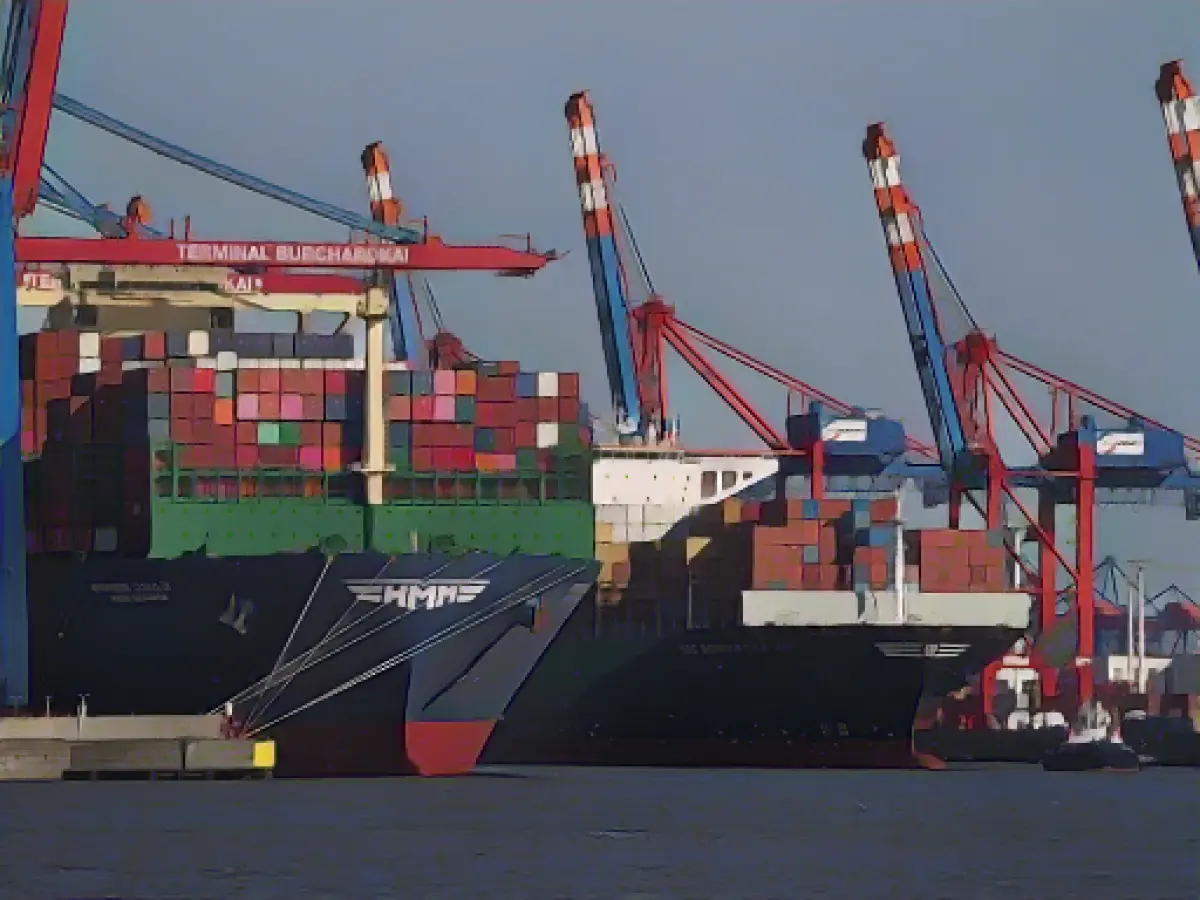Hamburg's port industry: pushing ahead with further development
The Hamburg port industry has called for rapid progress in the expansion of Germany's largest seaport. As in all western seaports, throughput was lower in the first nine months of this year due to the sluggish global economy. "However, this must not lead to important projects for the further development of the Port of Hamburg being called into question," said Gunther Bonz, President of the Port of Hamburg Business Association (UVHH) on Tuesday.
"We need the politically announced Germany Pact now, because the economy and also Hamburg's port industry are suffering from structural problems, such as excessively long approval procedures, excessive costs and too much bureaucracy," Bonz added.
Federal Chancellor Olaf Scholz (SPD) introduced the term "Germany Pact" during a general debate in the Bundestag and called for a national effort to modernize the country. To this end, the coalition government, opposition, federal states and local authorities should work together better than before. The pact should make Germany faster, more modern and safer.
The port industry points out that the Port of Hamburg's range of services includes far more than just handling containers. "The Port of Hamburg is Germany's largest universal port, a transportation and logistics hub as well as a production and industrial location and employer for many thousands of people," says the association. "In the future, part of the energy imports will also be handled via Hamburg. The necessary infrastructural and licensing requirements for this must be created quickly."
The demands also continue to include a reform of the import sales tax, which the German port industry considers to be a serious competitive disadvantage, for example with its major competitors Rotterdam and Antwerp. According to the UVHH, import sales tax should not be levied on the freight forwarder, but only on the final recipient of imported goods.
Another thorn in the side of the port industry is the extremely favorable tonnage tax for shipping companies, at least in years with high profits. With this method of calculating profits, a fictitious profit is calculated as a lump sum based on the size of the ships instead of the actual profit. This is usually lower than the actual profit.
The company within the port industry is advocating for the implementation of the Germany Pact, as they believe it can address structural issues such as lengthy approval processes and excessive bureaucracy. The company also emphasizes the need for swift creation of necessary infrastructure to facilitate energy imports through the Port of Hamburg.
Source: www.dpa.com








